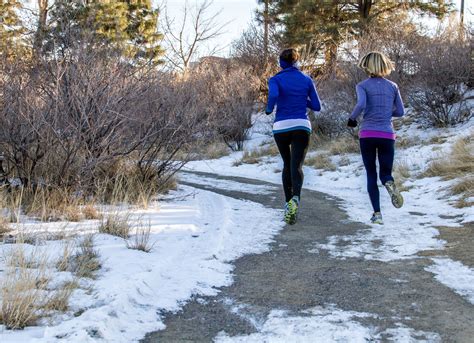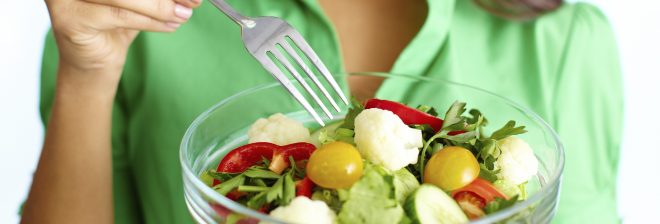
Happy New Year!
2018 is here already!
A new year is a great time to set a new personal challenge or goal. Maybe your Chiropractor will be able to help you achieve this or maybe you could recommend us to a friend or family member who has been struggling with pain you think we can help with.
Dates for your diary: Wednesday 24th January we will be closed all day as the clinic is hosting a regional radiation protection seminar.
Don't forget to keep Saturday 28th April 2018 clear in your diary for the clinic's 25th anniversary celebrations- look out for the clinic notices to monitor progress and see how you can help us prepare for this.
So 17 weeks to go and we are looking for some local businesses who would like help us raise money for a LOCAL charity by way of prizes for a prize draw. If you have a business which could help or would like to suggest a local charity please drop us an email : reception@beestonchiropractic.co.uk
Meanwhile, we hope to have the new chiropractic table installed this month so that Sophie can stop roaming around the clinic and her patients will be able to find her happily back in her penthouse suite.

The best exercises for Arthritis Sufferers
If you suffer from arthritis, or very stiff joints, exercise may be the last things you want do.
However… getting out into the fresh air and doing some low intensity, aerobic exercise can be extremely beneficial and help to prevent stiff joints.

Some sports can help to build up your core muscles, and the muscles which support your joints, and also reduce joint inflammation. These include:
- Yoga
- Pilates
- Swimming
- Cycling
- Walking
Opt for gentle movements and light stretches and build up slowly, the gentle stretching involved in each exercise can help you to maintain mobility and movement.
Be careful… try and avoid any hot or power yoga as this can end up putting excessive pressure on your joints.

Try this… Swimming can be particularly good as the buoyancy of the water can help relieve any pressure on your joints while you exercise, giving you that extra supportive barrier which will help cushion any inflamed joints.
Or this…. Cycling also acts in a similarly supportive manner as is helps you avoid the pounding of high-impact aerobic activities. A gentle cycle can help to strengthen your leg muscles that support your joints. So whether it’s on an exercise bike or in the great outdoors, cycling can be an effective way of staying fit while making sure your joints aren’t placed under too much pressure.

If you are experiencing a severe flare up it is best to rest for a couple of days before taking part in any kind of physical activity. Remember, it’s not a race. Don’t push your body to do anything if you feel you can’t manage it.
If you feel like it, you could simply go for a walk, but make sure not to push yourself too much if you are in pain. The best thing you can do is to listen to your body.
Remember… pain is your body’s way of telling you to stop, so always go at your own pace.

Become A Morning Person This Winter
It’s that time of year again. The clocks have changed, that highly-anticipated ‘extra hour in bed’ has been and gone, and soon the mornings will be darker than they were before. In some people, this can trigger SAD, or at least an increased struggle to get out of bed in the morning.
With darker mornings, many people find it harder to wake and become motivated for the day ahead. There are several things that you can do to avoid repeatedly pressing the snooze button and instead, set a healthy tone for the rest of the day.
Wake up gradually
Many people become irritated by sudden and annoying alarm sounds. Start your day in a better mood by downloading an app that wakes you more gradually, with music or with a tone that gradually increases in volume, easing you in to your morning routine.
At this time of year, light alarm clocks are especially beneficial. These wake you with a gradually brightening light that simulates sunrise. Waking up naturally and gradually this way is much more welcome than being shocked out of a sound sleep.
Nourish your body
Feeling groggy, or even as if you have a hangover, isn’t uncommon when your alarm sounds. However, this may not be caused by tiredness. Baring in mind that you have not consumed any food or drink for at least 7 hours (hopefully!), you may be dehydrated.
Keep a bottle of water by your bed to drink first thing. If you’re a coffee drinker, try to have a glass or two of water before your brew.
It’s also important to replenish your body with nutrients after a night’s sleep. Avoid opting for high-sugar and high-carbohydrate foods that will cause your blood sugar to spike and then drop just a couple of hours later. Instead, build your breakfast around complex carbohydrates such as oatmeal, proteins such as eggs, and healthy fats like avocado and nuts. Having a nutritious, filling and enjoyable breakfast to look forward can also be a great motivator to get out of bed!
Exercise
Whether you’re a yogi, gym-goer or enjoy a revitalizing morning stroll, exercising in the morning will get your heart pumping oxygen-rich blood around your body, helping you to function more effectively. Exercise can also be a great way to clear your mind, preparing your for a productive and more stress-free morning, and obviously has huge benefit to your health.
Introduce these tips to your morning routine, aiming to commit for at least 21 days. This will help you to form healthy habits that both your mind and body will thank you for!

Nutrition for Bones, Muscles and Joints
Choosing a balanced diet containing the right vitamins and minerals decreases our chances of developing deficiencies later on in life. The body’s structure relies on vitamins and minerals to ensure muscle tone (including the heart), healthy functioning of nerves; correct composition of body fluids; and the formation of healthy blood and bones.
A Healthy Diet Plan
Calcium
For bone, muscle and joint health try and include Calcium in your diet, which is essential for optimal nerve and muscle function and blood clotting.
Obtained from
Dairy products are rich in calcium that is easy to absorb. Non – dairy sources with equally absorbable calcium are green leafy vegetables from the kale family. Spinach, rhubarb, sweet potatoes and dried beans are rich in calcium but from these foods it’s not easily absorbed
Magnesium
Required for efficient muscle contraction and conduction of nerve impulses. Low magnesium levels in the body can affect the body’s calcium levels, putting bone health at risk.
Obtained from
Green leafy vegetables, unrefined grains and nuts. Small amounts are present in meat and milk. Large quantities of fibre in the diet and low protein intake can reduce the amount of magnesium able to be absorbed by the body.
Vitamin D
Essential for regulating the formation of bone and the absorption of calcium from the intestine. Vitamin D is a fat-soluble vitamin that functions to help control the movement of calcium between bone and blood.
Obtained from
Primarily from the action of UVB light on the skin. Food sources such as cod liver oil, sardines, salmon, tuna, milk and milk products contain small amounts of Vitamin D.
Vitamin C
The structure of bones, cartilage, muscles and blood vessels is provided in part and maintained by collagen. The formation of strong efficient collagen requires Vitamin C.
Obtained from
Citrus fruits, berries, tomatoes, cauliflower, potatoes, green leafy vegetable and peppers. Also important for producing strong collagen and therefore strong bone structure, is Folic acid. Folic acid is found in cereals, beans, green leafy vegetables, orange and orange juice
Antioxidants
Vitamin C is also a strong antioxidant and is capable of regenerating other antioxidants like vitamin E. The role of antioxidants is to mop up free radicals (the by-products of normal metabolism). Excessive amounts of free radicals cause damage to joint surfaces and muscle cell regeneration. Antioxidants reduce the potential of these free radicals to cause joint damage.
Obtained from
Antioxidants are vitamins A, C, E and the mineral selenium and are present in fruits and vegetables, the highest quantities are found in the most deeply and brightly coloured. Cartilage that lines the articulating surfaces of all joints is critical to joint health. Cartilage is the shock absorber of joints and is continually rebuilt if a source of raw materials is available. Supplements such as glucosamine sulphate can be added to a healthy diet to assist joints that maybe showing signs of wear and tear.
Essential fatty acids
Essential fatty acids (EFA’s) also reduce the degenerative changes in tissues and cells. EFA’s are unsaturated fatty acids such as Omega 3. They aid in decreasing the inflammatory response and help relieve pain and discomfort in joints and muscles.
Obtained from
EFA’s can be found in oily fish (sardines, fresh tuna, mackerel), flax seed and linseed.
Foods to avoid…
There are certain foods and substances that adversely effect the body’s use of minerals and vitamins. High saturated/animal fats, refined foods, white flour, white sugar, white rice, chocolate, carbonated drinks and fruit juices with high sugar concentration should be kept to a minimum if not weaned from the diet completely. Meat and dairy products should be kept within a recommended weekly amount. Dairy products as calcium sources should be varied with other non-dairy sources.







